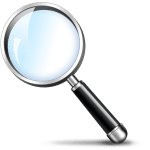503B Outsourcing Facilities - Are You in Compliance?
 A lot of discussion about how FDA 503B inspections are having a huge impact on 503B outsourcing facilities and their operations. It's easy to see that being prepared with your 503B P&P manual up to date is the key to a successful inspection results and compliance audit outcomes. The Drug Quality and Security Act, signed into law on November 27, 2013, created a new section titled 503B in the Federal Food, Drug, and Cosmetic Act. Under section 503B, a pharmacy compounder can become an outsourcing facility by registering with the FDA and paying a fee.
A lot of discussion about how FDA 503B inspections are having a huge impact on 503B outsourcing facilities and their operations. It's easy to see that being prepared with your 503B P&P manual up to date is the key to a successful inspection results and compliance audit outcomes. The Drug Quality and Security Act, signed into law on November 27, 2013, created a new section titled 503B in the Federal Food, Drug, and Cosmetic Act. Under section 503B, a pharmacy compounder can become an outsourcing facility by registering with the FDA and paying a fee.
Is Your Facility in Compliance?
Once registered as a 503B, an outsourcing facility must meet specific conditions to be exempt from the Food, Drug & Cosmetics Act’s (FDCA) approval requirements and product labeling requirements. The law requires that all medications and drugs be compounded in compliance with 21 CFR Part 210 and 211 (cGMP), either by or under the direct supervision of a licensed pharmacist in a registered facility.
Are FDA Inspections For 503B Compliance Taking Place?
The FDA began inspecting all 503B facilities based on their risk level assessment. Any deviations from cGMP or other FDA requirements observed during an inspection will be documented on an what's known as an FDA Form 483 and will lead to further FDA actions (up to and including medication and drug recalls, consent decrees, and formal litigation). Currently, there are seventy-one (71) registered 503B facilities and ALL but two (2) that have been inspected have been issued an FDA Form 483 ( accompanied by recalls of sterile products). The biggest reason for the high level of FDA actions is that the vast majority of compounding pharmacists are not trained in (nor familiar with) cGMP unless they have had significant experience in pharmaceutical manufacturing.The FDA has recently stated that it intends to continue with their inspections of compounding pharmacies in an attempt to take aggressive actions to protect the public health.
Is Preparing or Responding to an FDA Inspection Complicated?
Preparation for an inspection by the FDA, or corrective action in response to an FDA inspection, requires experts that are well versed in FDA rules and laws, cGMP, and facility design. It is a complicated process that is designed to make sure that medications are safe and effective by making Pharmacies adhere to quality standards when compounding pharmaceuticals.It is also important to note that the regulations are basically "minimum requirements" and that many Compounding Pharmacies utilize modern technology and documentation approaches that already go well beyond the minimum standards. Equipment, technology and risk management tools in place years ago to prevent errors and contamination may be seen as less than adequate by today's standards (and by future standards). Basically the Quality Compounding Act of 2013 (QCA) revolves around compliance with the Current Good Manufacturing Practice (CGMP) regulations. The FDA enforces these regulations to assure proper design, monitoring, and control of manufacturing processes and facilities. This then assures the identity, strength, quality, and purity of drugs and medications to the ultimate end-users (patients and consumers). The QCA allows a pharmacy to register as a Section 503B “outsourcing facility” to be exempt from the Food, Drug & Cosmetics Act’s (FDCA) approval and labeling requirements as long as specific conditions are in place and met.Although this is by no means meant as a comprehensive list, the following basic requirements include:- Medications must be compounded either by or under the direct supervision of a licensed Pharmacist.- Medications must be compounded in a registered facility.- All products and drugs compounded at the facility during any 6 months period must be reported to the FDA.- A detailed list about the compounded products (including source of ingredients, etc.) must be readily available for inspection.- Multiple conditions must additionally be met, such as reporting adverse events and labeling products with prescribed information (and must be documented).Under section 503B, a registered outsourcing facility may only use for compounding a bulk drug substance that is included on an FDA's established list of bulk drug substances for which there is a clinical need or which are on the FDA’s drug shortage list. Prohibited under sections 503A and 503B is the compounding of drugs that are on a list of drugs that present difficulties for compounding.
Who Can Help With 503B Compliance?
As a national leader in Pharmacy Consulting for over 29 years now, HealthCare Consultants Pharmacy Staffing and Consulting can help you ensure that you are in compliance. This is a team approach and HCC is that team! HCC has experts available with many years of experience in pharmacy compounding, pharmaceutical manufacturing, cGMP design and compliance, and FDA law. Contact HCC to discuss facility and operational assessment, risk mitigation, and corrective action planning.We urge you to contact us today to see how our Pharmacy Consulting services can help. With a full-time staff of expert in-house Pharmacy Consultant specialists, HCC can answer any questions that you may have in all areas of your business. Contact us online now or call us today at 800-642-1652 for a free consultation.
